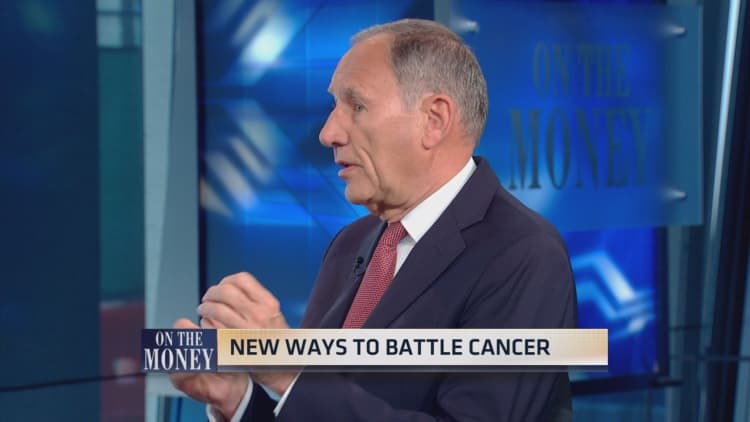
Your next doctor visit could be in your home, but not as a traditional house call.
Instead of going into a medical office, a Cleveland Clinic program lets patients schedule a "virtual visit" with a doctor using a tablet, smartphone, or desktop.
"What we're really driving at is access to health care anywhere, anytime," Cleveland Clinic President and CEO Toby Cosgrove told CNBC's "On the Money."
Last year, the Cleveland Clinic said 4,200 virtual visits or online consultations were completed. Cosgrove, who first joined the institution as a heart surgeon in 1975, predicted to CNBC that would be just the beginning.
"I think this is what's going to happen in many, many areas," Cosgrove told CNBC, adding that mobile appointments are "more efficient for caregivers" and patients alike.
"Clearly, it saves you from going to the doctor's, parking your car, going into the waiting room, waiting and then repeating the process," he said. Cosgrove added that users "can do it from any location…and it is an opportunity to expand the scope of care to remote areas."
The $7.2 billion clinic has more than 3,000 doctors in its system, and sees nearly 7 million patients per year. However, Cosgrove told CNBC he would "absolutely" do an online consultation with a patient himself—with some caveats, of course.
"Obviously, if [a patient has] cardiac disease, I don't think I'm going to be doing that online," he said. "But if [one has] a dermatological problem, or if I have an orthopedic problem, or a follow-up from a heart operation. Or a follow-up from some sort of surgery where really someone just needs to look at the incision and make sure it's OK? Absolutely," he added.
Obamacare check up
Six years since the passage of the Affordable Care Act, more people have health care coverage. According to Gallup, the number of uninsured Americans is 11 percent this year, a record low.
But according to PwC's Health Research Institute, cost of medical insurance is rising at 6.5 percent a year.
Cosgrove, who has called Obamacare a "long term project" in an interview last year, said the combination of rising costs and more demand will put pressure on health care providers moving forward.
"I think health care costs are really going to be dependent upon the aging of the population," he said. "We've got more and more people living longer and there are more and more things we can do for them."
At the Cleveland Clinic, the traditional payment model is changing, with some 60 percent of the institution's payment and revenue coming from government sources like Medicaid and Medicare, Cosgrove said. "So 40 percent is from private insurance and that is shifting over time," he added.
Cosgrove explained that "private insurance is decreasing at about 1 percent a year, and government pay is increasing at about 1 percent a year."
In prior years, "we have lost money on Medicare and Medicaid and we have made up the difference in private insurance. Now private insurance, as it becomes less common, is not making up that gap for us," the CEO added.
In response, Cosgrove says doctors have to "reduce the cost" and "improve the efficiency of how we deliver care. That ultimately means changing care, how we deliver it, where we deliver it, who delivers it and the way we deliver it."
"On the Money" airs on CNBC Sundays at 5:30 a.m. ET, or check listings for air times in local markets.



